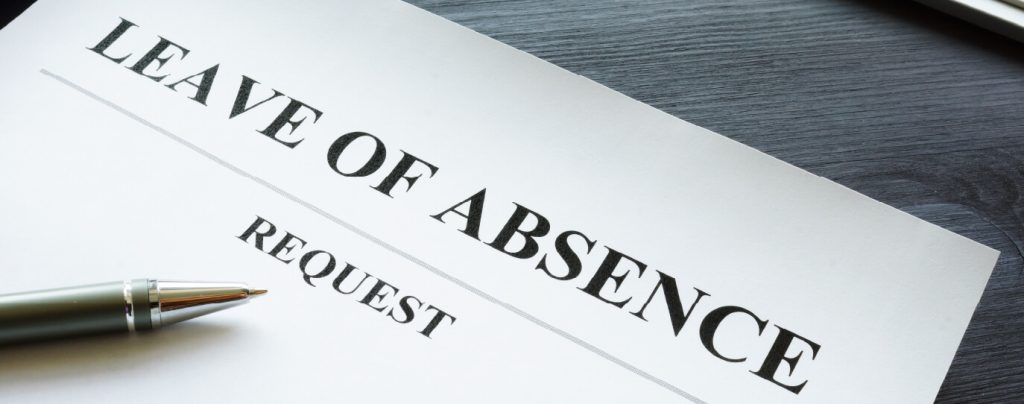
NEWS
Domestic Violence Leave: What It Means for Victims & Employers
Domestic violence is a distressing reality that affects many lives. It involves violent, threatening, or abusive behaviour by a close relative, intimate partner, or household member, seeking to control or harm the victim. This can make the victim’s daily lives and regular activities very difficult to carry out, not least to perform their jobs while dealing with the physical and emotional toll of abuse.
These challenges have been recognised by the Australian Government, and as such, Family and Domestic Violence Leave has been introduced, giving affected employees the right to take up to ten days off work each year without losing pay. Domestic violence lawyers can provide invaluable assistance in this process, assisting both employers and employees through these difficult situations.

What Is Family and Domestic Violence Leave?
Family and domestic violence leave is a critical provision aimed at assisting employees facing distressing situations. This leave pertains to instances of violent, threatening, or abusive behaviour directed at an individual by a close relative, a former or current intimate partner, or a member of their household. The purpose of such behaviour is to coerce or control the employee, causing them harm or fear.
What Counts As A Close Relative?
Close relatives, as defined in this context, encompass a wide range of relationships. They include spouses or former spouses, de facto partners or former de facto partners, children, parents, grandparents, grandchildren, siblings, and even individuals related to the employee through Aboriginal or Torres Strait Islander kinship rules. This comprehensive definition ensures that the leave covers a broad spectrum of family and domestic relationships.
How Long Is Domestic Violence Leave?
Legally, family and domestic violence leave guarantees affected employees up to 10 days of paid leave per year. What makes this provision particularly noteworthy is that it doesn’t discriminate based on employment status. Casual, part-time, and full-time employees are all entitled to this leave without any pro-rata reductions. Importantly, the Australian Government have integrated family and domestic violence leave into the 11 National Employment Standards, a safety net providing the absolute minimum requirements that employees of all descriptions are entitled to.
Accessing and Applying for Domestic Violence Leave
Accessing and applying for domestic violence leave is a straightforward process designed to offer support and understanding to those in need. Here’s a step-by-step guide to help employees navigate this essential benefit:
Requesting Leave
If you find yourself in a situation where you need to access family and domestic violence leave, the first step is to inform your employer as soon as possible. Generally, it is recommended that you provide this in writing. However, you may be in a situation where your domestic violence leave has commenced before you’ve notified your employer, and this is okay. The legislation acknowledges that you can’t plan for a crisis and as such, it makes provisions for these circumstances.

Evidence Requirement
Generally, evidence is not required to access domestic violence leave initially. It’s recognised that crises can be unpredictable, and you may not have immediate access to documentation. This flexibility is crucial for those facing family and domestic violence.
Employer’s Request for Evidence
In some circumstances, your employer can reasonably request evidence, and you may be asked to provide documentation that would convince a reasonable person of the need for leave due to family and domestic violence. While evidence can vary, it might include a police report, court order, or a statement from a medical professional. It’s essential to communicate openly with your employer if they request evidence, as understanding and cooperation are key.
Confidentiality and HR Support
Your privacy is important during this challenging time. Employers are legally obligated to maintain the utmost confidentiality when it comes to your situation. If your business has a Human Resources department, they can play a crucial role in providing support and guidance throughout the process. They can help you understand your rights and the steps involved.
Role of Domestic Violence Lawyers
If your employer does not have a Human Resources Department, or if you encounter any challenges during this process, domestic violence lawyers can provide valuable assistance. They can help you navigate legal aspects, ensure your rights are protected, and provide guidance on gathering necessary evidence if required.

Employer’s Conditions and Responsibilities in Providing Domestic Violence Leave
Employers play a crucial role in providing domestic violence leave to their employees and creating a supportive work environment. Here are the key conditions and responsibilities employers must adhere to:
Confidentiality
Employers are prohibited from including information about an employee’s use of domestic violence leave on their pay slip. This ensures the utmost privacy and confidentiality for the affected individuals.
No Pro-Rating
Domestic violence leave is available upfront and is not pro-rated for part-time or casual employees. Every eligible employee, regardless of their employment type, is entitled to the full 10 days of leave each year.

Full Rate of Pay
For full-time or part-time employees with a paid entitlement, family and domestic violence leave must be paid at the employee’s full rate of pay. This means they should receive their regular wage for the hours they would have worked had they not taken leave.
Casual Employees
Casual employees with a paid entitlement should also be paid at their full rate of pay for the hours they were originally rostered to work during the period they took leave. This ensures that they do not suffer financially when accessing this crucial benefit.
Additional Entitlements
In addition to domestic violence leave, employees facing family and domestic violence may also be entitled to request flexible working arrangements. These can include changes to working hours, patterns, or locations to accommodate their needs. Sick and carer’s leave can be accessed if they or a family member experience an unexpected emergency or illness due to domestic violence. Employees may also choose to use their accrued annual leave or take unpaid leave, depending on their individual circumstances and preferences.
Reach Out To Domestic Violence Lawyers For Assistance
Domestic violence leave is a vital entitlement that offers support and protection for victims. Employers have a crucial role to play in its proper implementation, ensuring a safe and compassionate workplace. Experienced domestic violence lawyers can assist in educating individuals about their entitlements and can empower both employers and employees to be informed and supportive. Together, we can create a workplace that stands against domestic violence, providing solace and assistance to those who need it most.

